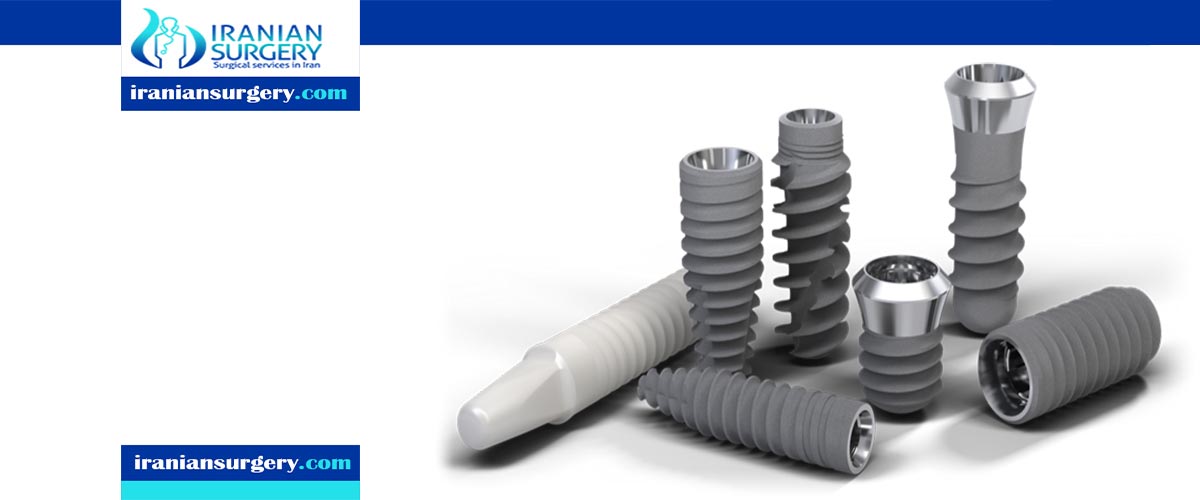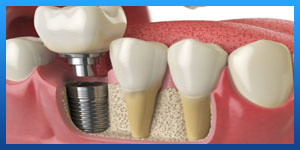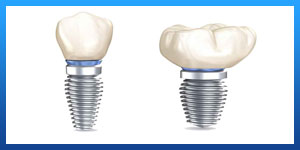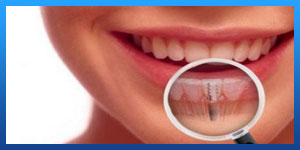One day dental implants

Same-day Dental Implants
What are Same-day Dental Implants?
Same-day, or one-day, dental implants are a solution to the biggest problem of getting implants—that it can take many weeks or even months. As the name suggests, with this procedure, you can get your implants the same day you have your unhealthy teeth removed.
Same-day dental implants use technology that allows the rod that holds the abutment to fuse to the jawbone better. Immediately filling the extraction sites with implants promotes a faster healing time.
Read more about : One day dental implant cost
The best thing about same-day dental implants is obviously the shorter duration of treatment, meaning that the gums are able to immediately start growing around the implant. This gives your smile a more natural look while preventing food debris from entering the open surgical wound left behind after extraction. Your gums and bone are also much less likely to recede, which can reduce the chances of needing further treatment later on.

About Iranian Surgery
Iranian surgery is an online medical tourism platform where you can find the best dentists in Iran. The price of Same-day Dental Implants in Iran can vary according to each individual’s case and will be determined based on photos and an in-person assessment with the doctor.
For more information about the cost of Same-day Dental Implants in Iran and to schedule an appointment in advance, you can contact Iranian Surgery consultants via WhatsApp number 0098 901 929 0946. This service is completely free.
Before same-day Dental Implants
Who can get implants in a day?
Not all patients qualify for same-day treatment. In addition to perhaps needing a sinus lift, bone augmentation, or ridge expansion, there are certain requirements that an individual has to meet before this type of treatment can be considered. The list below will show if you can receive a dental implant in one day.
. Good candidate
. Good general health
. Intact jawbone
. Non-smoker or willing to quit before the process begins
. Bad candidate
. Gum disease
. Poor hygiene and oral health
. Autoimmune disease
. Chronic disease
. Bruxism

Advantages of Same Day Dental Implants
When evaluating the best alternative for teeth implants, you should carefully weigh the pros and cons of the two techniques. The advantages of same day implants include:
. High rates of success
. Getting implants that fuse to the bone better
. Gums and soft tissue that heal over a shorter period of time
. Immediate restoration of your appearance
. Fewer risky surgeries required
. Temporary but functional teeth supplied until your permanent crowns are ready
. Immediate functionality to eat, talk and chew
Read more about : Dental implant problems
Read more about : Dental Implant Bleeding
Read more about : Dental Implant Pain Years Later
Read more about : Dental Implants Side Effects
Disadvantages of Same Day Dental Implants
There are some distinct disadvantages to consider before proceeding with same day dental implants. These include:
. Marginal bone loss that is greater than in traditional implant techniques
. Greater risk of failure of the implant
. Increased postoperative pain and discomfort
. Forced to eat a soft diet while healing
. Health conditions that prevent the procedure
Same-Day Dental Implants vs. Traditional Implants
The convenience of same-day, or immediate load, dental implants is pretty staggering. What can take traditional implants many months to complete can be done in just 1 trip to your dentist. How you ask. With traditional implants, you must:
. Extract the tooth and wait 2-4 months for the socket to heal
. Insert the implant and wait 3-6 months for osseointegration
. Then place the crown into the implant
. Timeline: 5-10 months
Same-day implants, however, are much quicker. You'll have an early consultation visit to see if you're a good candidate. And a final checkup after your surgery. But the implant procedure itself will only require a single visit to your dentist. This allows you to skip the osseointegration, the wound healing process, and many months of waiting. Fast and effective is always a great combination.
During same-day Dental Implants
Types of same-day implants
There are several types of same-day implants, and they all have their own benefits and drawbacks.
. Immediate load implants (ILIs)
These same-day implants allow for the placement of a temporary tooth (or multiple teeth) the same day that you get the implants. They are usually a combination of single implants and implant-supported dental bridges. This option is best if your natural bone is strong enough and secure enough to support immediate placement and pressure from a new tooth, provided that your treatment doesn't require a sinus lift procedure, bone augmentation, or ridge expansion. The aforementioned procedures will increase the amount of time it will take to install new implants.
. Mini dental implants (MDIs)
This option is also known as a “small” or “narrow” diameter implant. Mini dental implants are toothpick-sized implants that are narrower than most rods used for a dental implant. This dental implant procedure is less invasive than others and is often used in situations where bone loss can't support a full implant. It's important to note that this type of implant has a slightly higher failure rate than other types of implants.
. All-on-4
All-on-4 is another option for dental implants in a day. Dental implants are placed on the jawbone and special abutments used so that a temporary set of teeth can be placed on the same day. Four implants on top and four implants on the bottom will complete the procedure and give patients new teeth in one day. The biggest change is that for six months, patients must follow a modified diet while the bone heals, but after the healing is complete, those new chompers can bite through nearly anything
During the Procedure
Dental implant in a day procedure
A one-day tooth implant procedure is very similar to traditional implants. In fact, the procedure looks the same for all three aforementioned options, but the type of implants change.
ILIs have shown success with both individual and multiple teeth; how much movement there is of the dental implant after setting will determine if a new tooth can be attached on the same day. The same-day dental implants procedure looks something like this:
. Consultation: Your dentist will need to examine the placement of your sinuses, the integrity of your jawbone, and the placement for each implant. If your sinuses require surgery to move them out of the way or your bone is too fragile or small to hold an implant, then further surgeries may be required before the implant procedure can proceed. Not all patients are recommended for same-day implants.
. Surgery: Your implant dentist or surgeon may first give you a sedative to relax you during the procedure and then will administer an anesthetic to prevent pain. Any teeth needing extraction will be removed and your mouth will be thoroughly cleaned before proceeding. The dentist will drill holes into the bone where the dental implant will be placed. Then your mouth will be cleaned again and the incised areas will be stitched up.
. Fitting: After the placement of the implants, the abutments will be fitted for new teeth. If the patient's implant is unstable, the dentist may recommend leaving the abutment uncapped to heal without damaging the bone beneath it. Your dentist may recommend a temporary over-denture to fit over the new abutment. These would be replaced in a few months instead of permanent caps.
. Aftercare: Once the fitting is finished, the patient may leave to recover. Typically, same-day implants mean that after the dental implant surgery, the patient can go on about their life with minimal changes. Diet and oral hygiene are the most important changes to consider. Implants need time to heal so trying to bite into an apple two hours after your jawbone has been drilled into isn't going to end well.
. Final checks: After about six months, the patient will return to check if the one-day tooth implant has healed correctly and that the teeth all fit together correctly.
After same-day Dental Implants
Recovery
After the implant is complete, patients may experience some discomfort, including:
. Swelling in the gums and face
. Slight bleeding
. Bruised gums and skin
. Pain
. Possible infection
Every patient's experience is different, but the recovery process of a successful implant is relatively easy with proper oral hygiene and pain medication. Recovery time is about three to six months—not all of this time is spent swollen or bruised. It's the bone beneath the gum that is healing. Same-day and traditional dental implants have a similar impact on the bone structure. Much like the treatment for a broken leg takes three to six months, so does that of a broken jawbone. Some patients may experience longer recovery periods depending on the degree of dental work required and the individual's healing speed.

How long do same-day dental implants last?
These implants last as long as traditional methods: 10+ years. This lifespan is true as long as you take proper care of them. Whether or not they last longer is influenced by a few things such as:
. Dental hygiene such as brushing and flossing regularly
. How well you avoid chewing on or eating hard things
. How good your dentist is at placing the implants in such a way that the bone can support them for a long period of time
. Your general lifestyle and health
Are one-day dental implants safe?
Any treatment that involves a surgical procedure to implant something is a serious undertaking. This particular type of dental implant relies on the skill and knowledge of the person doing the job, and some dentists specialize in implant procedures. That being said, surgery always comes with some risk, but implants have a relatively low risk of complications. Always make sure that the dentist and clinic have valid credentials, especially when practicing dental tourism.
The healing period for this type of treatment is the most crucial time. This is when your surgical site is most vulnerable to infection. Your new tooth is in place while the bone is still fusing with the metal rod so there is an increased risk of implant movement and implant failure. Smoking and grinding your teeth can contribute to implant failure.

